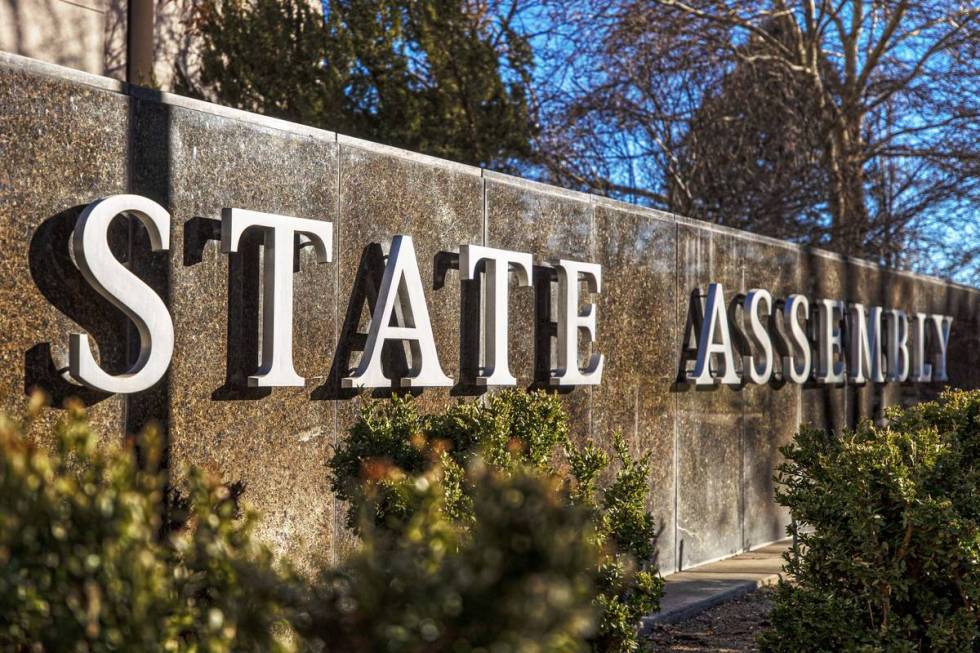Nevada looking at public option for health insurance

CARSON CITY — Democratic lawmakers on Wednesday introduced a revived effort to establish a public health insurance option in the state aimed at helping some of Nevada’s 350,000 uninsured residents get health coverage.
Senate Bill 420 also would expand Medicaid services to more pregnant women and their families by increasing income eligibility. The bill, sponsored by Democratic leaders in both chambers and introduced in the Senate, was referred to the Health and Human Services Committee for hearings.
“If there is one thing that the (COVID-19) pandemic has absolutely illustrated, it is the need for more affordable health care and accessible health care for Nevadans in this state,” Senate Majority Leader Nicole Cannizzaro, D-Las Vegas, said after the bill was introduced. “This has been a work in progress for a while and something that we knew was needed well before the pandemic, and if anything, where we are now has especially highlighted why it is that this is so important.”
A public option, where lower-income residents could obtain subsidized lower-cost coverage through the state health care exchange, passed in the Legislature on party lines in 2017 but was vetoed by then-Gov. Brian Sandoval, a Republican. The topic withered in the 2019 session after the resignation of its leading advocate, Assemblyman Mike Sprinkle, but was resurrected toward the end of that session with passage of a resolution authorizing an interim study on the topic.
That study, released in January, looked at the public option as one of two plans to expand health care coverage. The study estimated new enrollment in the new public option at between 9,000 and 32,000 individuals, 1,500–4,900 of them previously uninsured.
Nevada had 349,000 uninsured in 2019 and ranked seventh in the nation for highest percentage of uninsured at 11.5 percent, according to the Kaiser Family Foundation. The rate among Hispanics is nearly 22 percent, according to the foundation. Nevada otherwise continues to rank last or close to last in state health care metrics.
Sold on exchange
The bill just introduced would require insurance companies that bid on the state’s Medicaid managed care contracts to offer lower-cost health insurance on the individual market that would be sold on the state’s health insurance exchange. The public option also be sold off the exchange and made available on the small employer market.
The program would leverage the state’s purchasing power to keep prices down and also tap into federal subsidies. It would be funded by premiums and use a federal innovation waiver to maximize federal funding. It would go into effect in 2025 after an initial period of data collection and possible tweaking.
“What we’re hoping to do with this plan is to put forth an option that will utilize the state’s purchasing power, along with a number of parameters that are outlined in the bill to help lower the cost,” Cannizzaro said.
Within that uninsured population, about 56 percent are eligible for either Medicaid or other health insurance but are not enrolled, 27 percent lack insurance because of their immigration status, and 17 percent can’t afford insurance, according to data from the Guinn Center for Policy Priorities, which put the number of uninsured Nevadans at closer to 400,000 in a 2019 report.
The option could be available to up to two-thirds of Nevada’s uninsured, according to a briefing document from the United States of Care, a health care advocacy group, that Senate Democrats distributed after the bill was introduced. With the public option attracting more uninsured residents than those looking for cheaper insurance, providers and hospitals “should expect to see some increases in revenue from services provided to this newly insured population,” according to the group.
An opposition group called Nevada’s Health Care Future, which espouses free-market solutions to expanding coverage, rejected the plan as “an unaffordable new government-controlled health insurance system.”
“The best way to expand coverage is by building and improving on what works today where the free market works together with public programs — like Medicaid and the Affordable Care Act — so that those who need coverage the most can get it,” Holly Silvestri, a partner with the lobbying and public affairs firm Ferraro Group serving as the group’s spokesperson, said in a statement.
Republicans seek unemployment fix
Also Wednesday, Senate Republicans introduced a bill aimed at fixing the state’s unemployment payments system, which buckled in 2020 under the strain of record high claims caused by pandemic-related business shutdowns. Senate Bill 419 aims to streamline payments and simplify the application process for benefits with help of a $40 million investment in system and technology upgrades. The bill was referred to the Senate Commerce and Labor Committee.
Positive COVID test
Later Wednesday, the Legislative Counsel Bureau reported a positive COVID-19 test result for an unidentified building worker and said the state Department of Health and Human Services was performing contact tracing. With widespread vaccinations carried out in March, the positive test is not expected to change procedures in the building.
Contact Capital Bureau reporter Bill Dentzer at bdentzer@reviewjournal.com. Follow @DentzerNews on Twitter. Contact Capital Bureau Chief Colton Lochhead at clochhead@reviewjournal.com. Follow @ColtonLochhead on Twitter.
Nevada Option Memo by Las Vegas Review-Journal on Scribd